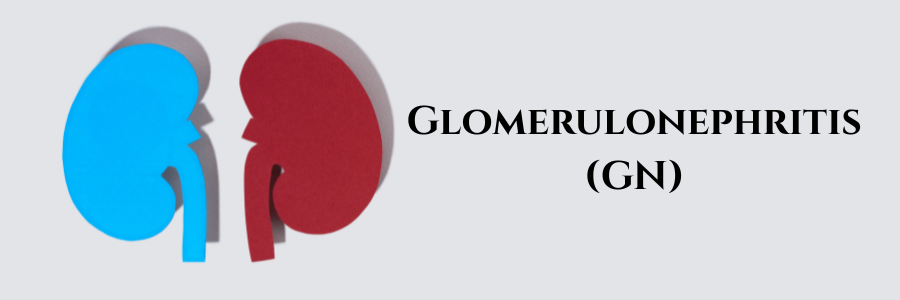Glomerulonephritis (GN) is a group of kidney diseases that involve inflammation of the glomeruli, which are the filtering units of the kidneys. Here are some key points about GN:
Types of Glomerulonephritis:
1. Acute glomerulonephritis: Sudden onset of inflammation and damage to the glomeruli.
2. Chronic glomerulonephritis: Long-term inflammation and damage to the glomeruli, which can lead to kidney failure.
3. Rapidly progressive glomerulonephritis: Aggressive and rapid progression of inflammation and damage to the glomeruli.
Causes of Glomerulonephritis:
1. Immune system disorders: Conditions such as lupus, rheumatoid arthritis, and vasculitis can cause GN.
2. Infections: Bacterial, viral, or parasitic infections can cause GN.
3. Genetic disorders: Certain genetic disorders, such as Alport syndrome, can cause GN.
4. Toxins and medications: Exposure to certain toxins or medications, such as nonsteroidal anti-inflammatory drugs (NSAIDs), can cause GN.
Symptoms of Glomerulonephritis
- Hematuria: Blood in the urine.
- Proteinuria: Excess protein in the urine.
- Edema: Swelling in the legs, ankles, and feet.
- Hypertension: High blood pressure.
- Fatigue: Feeling tired and weak.
Diagnosis of Glomerulonephritis
- Urinalysis: Analysis of urine to detect blood, protein, and other abnormalities.
- Blood tests: Blood tests to detect kidney function, electrolyte levels, and immune system disorders.
- Kidney biopsy: A biopsy of the kidney to examine the glomeruli and detect inflammation and damage.
- Imaging studies: Imaging studies, such as ultrasound or CT scans, to evaluate kidney structure and function.
Treatment of Glomerulonephritis
- Medications: Medications to control inflammation, blood pressure, and immune system disorders.
- Dialysis: Dialysis to remove waste products and excess fluids from the blood.
- Kidney transplantation: Kidney transplantation in severe cases of GN.
- Lifestyle changes: Lifestyle changes, such as a healthy diet, regular exercise, and stress management, to manage symptoms and slow disease progression.
Complications of Glomerulonephritis
- Kidney failure: GN can lead to kidney failure, which requires dialysis or kidney transplantation.
- Hypertension: GN can cause hypertension, which can increase the risk of cardiovascular disease.
- Electrolyte imbalances: GN can cause electrolyte imbalances, which can lead to muscle weakness, cramps, and other symptoms.
- Anemia: GN can cause anemia, which can lead to fatigue, weakness, and other symptoms.
Read also:

